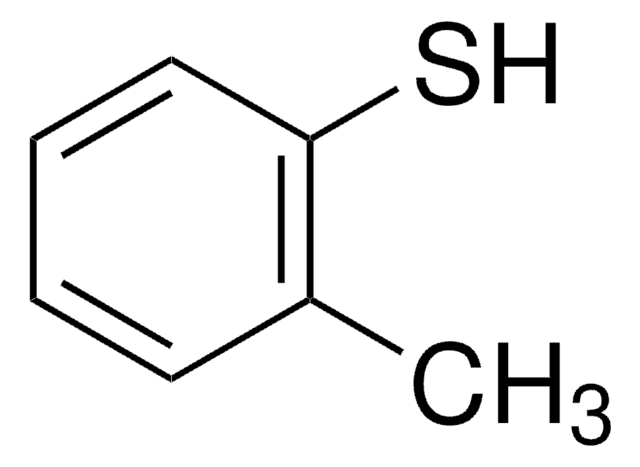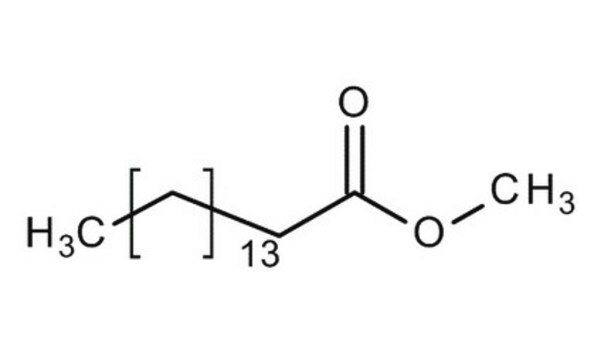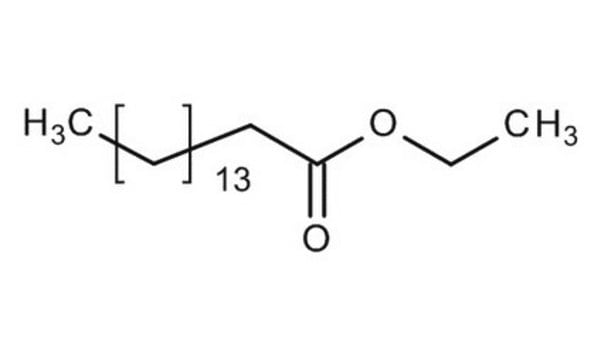W509531
Methyl palmitate
≥97%
Synonym(s):
n-Hexadecanoic acid methyl ester, Methyl hexadecanoate, Palmitic acid methyl ester
About This Item
Recommended Products
biological source
Cocos nucifera
palm oil
synthetic
Quality Level
Assay
≥97%
refractive index
n20/D 1.4512 (lit.)
bp
185 °C/10 mmHg (lit.)
mp
32-35 °C (lit.)
density
0.852 g/mL at 25 °C (lit.)
application(s)
flavors and fragrances
Documentation
see Safety & Documentation for available documents
food allergen
tree nuts
Organoleptic
waxy
SMILES string
CCCCCCCCCCCCCCCC(=O)OC
InChI
1S/C17H34O2/c1-3-4-5-6-7-8-9-10-11-12-13-14-15-16-17(18)19-2/h3-16H2,1-2H3
InChI key
FLIACVVOZYBSBS-UHFFFAOYSA-N
Looking for similar products? Visit Product Comparison Guide
General description
Application
Disclaimer
Storage Class Code
11 - Combustible Solids
WGK
WGK 1
Flash Point(F)
235.4 °F - closed cup
Flash Point(C)
113.0 °C - closed cup
Personal Protective Equipment
Choose from one of the most recent versions:
Already Own This Product?
Find documentation for the products that you have recently purchased in the Document Library.
Customers Also Viewed
Our team of scientists has experience in all areas of research including Life Science, Material Science, Chemical Synthesis, Chromatography, Analytical and many others.
Contact Technical Service








